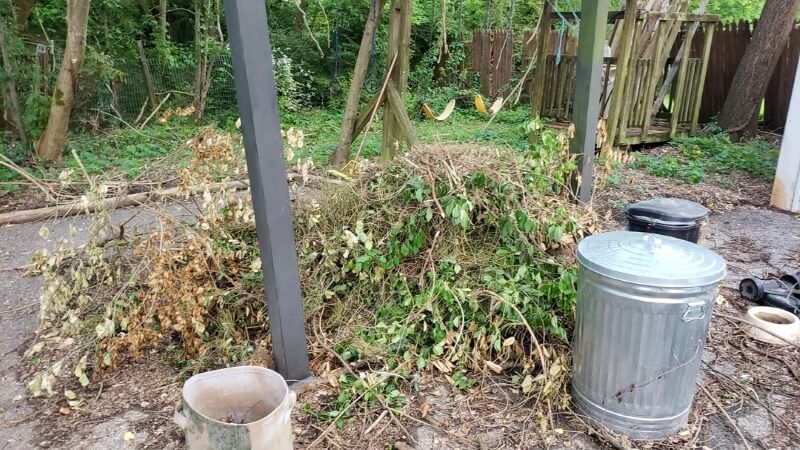Dealing with invasive species in the garden can be one of the most frustrating tasks when trying to cultivate green space.
Weeds grow quickly, spread far and wide, and can be a nightmare to properly remove from your soil. But getting rid of weeds from your garden isn't the only difficult task. Knowing what to do with them afterward can also be a major challenge.
Photo credit: Reddit
 Photo credit: Reddit
Photo credit: Reddit
That's why one gardener took to the r/NativePlantGardening community to ask for advice on what to do with the wisteria, mountain laurel, and honeysuckle he'd removed from his garden.
“If someone, [wintercreeper] “I'm open to anything. If anyone knows how long wisteria can survive after it has been cut off at both ends and uprooted, I'd love to plant it on my fence,” they asked in the post, along with a photo of the uprooted plants.
One user suggested burning the plants and using the ashes as fertilizer, which eliminates the risk of the plants re-sprouting and spreading, but still gets the plants some good use.
Others have made similar suggestions that the amount of carbon being released into the atmosphere is not that great.
Sign up for our newsletter and get the best news, eco-friendly hacks, and the latest in cool clean tech delivered straight to your inbox every week.
“Instead of regular composting, I like to dry the weeds in the sun, ideally spreading them thinly on asphalt or concrete such as a driveway or patio,” they began. “You can also hang them on a fence or rope. Either way, I wait until they are crisp and dry. Then I crush them as finely as possible before composting.”
While this may work for most plants, the original poster noted that their own research has determined that two years of hot composting is required to safely deal with winter kill grass before adding it to the compost pile.
Whatever you decide to do, it's important to find out more about the plant you're dealing with and act accordingly. Invasive plants such as English ivy and bamboo are incredibly resilient, so you'll need to take the necessary steps to stop them coming back with a vengeance.
But all of this just goes to show how important it is to make sure the plants in your garden are native. Invasive species compete with native plants for space, water, nutrients and sunlight, and can really put an end to any greenery you're trying to grow.
Native plants are vital to local ecosystems, supporting the pollinators that help ensure roughly one-third of the world's food supply. These plants are also well suited to local weather conditions and soil types, so they can thrive with little care and provide a vibrant garden.
Thankfully, native plants also require less weeding and disposal, saving you time and stress, allowing you to enjoy the outdoors with peace of mind.
Sign up for our free newsletter for easy tips on how to save more, waste less and help yourself while helping the planet.


